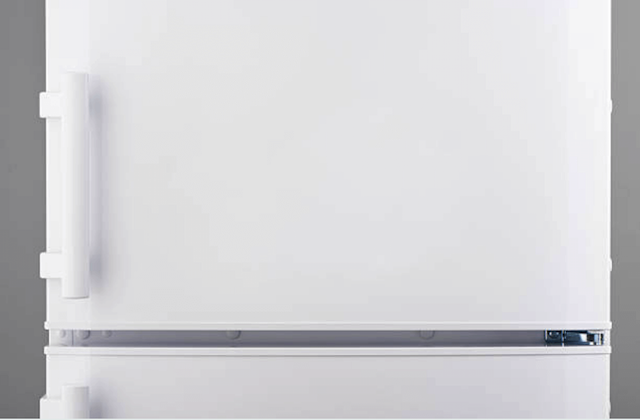Why is My Refrigerator Noisy?

Strange noises coming out of a refrigerator is one of our most common customer calls. This means our technicians know just how to diagnose the problem and correct it. Call G&C Appliance Repair today! Refrigerator repair service information.
A noisy refrigerator is the worst. If the refrigerator in your home seems to be a bit noisier than it usually is there are a few simple things that you can check while attempting to find the answer. There are several fans on a home refrigerator that could create strange noises. The refrigerator might also not be balanced too. Or you could have a compressor that’s wearing out. If your refrigerator is noisier when the ice maker is operating, the noises could be a broken a water valve.
There are a few basic things that must be be checked first. Like is the refrigerator filled too full? A refrigerator that’s too can sometimes cause glass bottles and other foods and liquids to clink and clank together. This will create a lot of loud noises inside the refrigerator that’s not ideal because the refrigerator is on and naturally producing a minor vibration.
If you have a refrigerator that has a water dispenser or ice maker but do not have the water line hooked up, be positive you turned off the water dispenser and the ice maker. There is almost always a button on the dispenser on the refrigerator that can be pressed to turn off the dispenser. And as far as the ice maker, you just need to pull up the metal bar. If the refrigerator was installed really close to a wall in the kitchen, it will cause the normal operating sound to seem a lot louder than it is. This is because of the echoing of the noise of the appliance. Pull it out a bit from the kitchen wall and see if that helps or not. A refrigerator should be about 2 inches away from the back wall of the kitchen to limit the noise.
If it’s not any of these simple and easy fixes, it is time to dive on in. The majority of the time, the fans are the cause of a refrigerator that is loud. There are fan blades that will often get dirty and clogged. There are times the fan motors do too. There’s a condenser fan in the refrigerator and an evaporator on refrigerators too. Often times the refrigerator condenser fan gets a coating of dust or fuzz on it and should be cleaned on a regular basis. If it builds up and gets too heavy it will sometimes wear out the bearings inside the fan’s motor.
Clean the Fan & Refrigerator Condenser Coils
First, the refrigerator. Most of the time you will need a wrench or screwdriver to remove the back panel from the refrigerator. As soon as it’s off you’ll notice a fan in there. If it’s covered in dirt and dust, take a cloth and gently wipe it off. While you are in there you should check the coils as well. These are usually near there and will be covered in the same dust and grime that the fan is. Cleaning the coils will only take a couple of minutes and it will certainly help the refrigerator run more efficiently. This is a very common issue that sometimes causes a refrigerator to run non-stop.
Spin the fan blades in the refrigerator. Do the blades spin freely? If not it means the fan motor bearings are broken. This is a simple repair, as the fan assembly is typically a part that can be ordered and can be replaced by simply disconnecting it. However, before you do any of this, be sure the refrigerator is unplugged. Do the same process for the evaporator fan in the refrigerator, which is located behind the freezer unit. This isn’t typically the problem, as this fan is concealed by being within the walls of the refrigerator. But, if the sounds are coming from the top of the appliance that is the place to look.
If you think it might be the compressor, the large, typically gray or black object under the refrigerator near the coils, we suggest calling G&C Appliance Repair. That’s not a repair a homeowner should attempt.
ADDITIONAL REFRIGERATOR RESOURCES
- How Does a Refrigerator Work?
- Ice Maker Not Working
- Water Dispenser Not Working
- Refrigerator Not Cooling (continue)
Home Services Campaign Disclaimer: This site is a free service to assist homeowners in connecting with local service providers. All contractors/providers are independent and this site does not warrant or guarantee any work performed. It is the responsibility of the homeowner to verify that the hired contractor furnishes the necessary license and insurance required for the work being performed. All persons depicted in a photo or video are actors or models and not contractors listed on this site.
Copyright ©2025 Encino Appliance Repair
